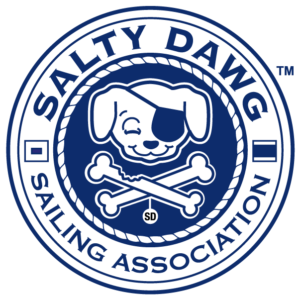|
TOP TEN MEDICATIONS TO KEEP ON YOUR VESSEL
Written by Drs Benjamin Jack and Terez Malka
Traveling by water is a unique opportunity to disconnect and travel to places that others rarely get to experience. But, being remote from day-to-day life also means being disconnected from medical care and pharmacies. Here are the top 5 prescription and top 5 over-the-counter medications to consider keeping on board. remote from day-to-day life also means being disconnected from medical care and pharmacies. Here are the top 5 prescription and top 5 over-the-counter medications to consider keeping on board.
Over-the-counter
-
Pain relief: sprains, strains, bruises, and abrasions are common in wet, slippery conditions. Ibuprofen, acetaminophen, and topical muscle and bruise ointments can help keep you comfortable and functional.
-
Aloe Vera gel: Alcohol-free, 100% aloe vera gel is the most effective treatment for sunburn, and can also be used on scrapes and minor skin irritations.
-
Antihistamines: Rashes and allergic reactions commonly occur with exposure to sun, wind, and materials such as fiberglass. Antihistamines can also be used to relieve itching due to sunburn, allergic reactions from minor to severe, to help with insomnia, for congestion due to respiratory illnesses, and for motion sickness.
-
Hydrocortisone cream: Like antihistamines, hydrocortisone can treat rashes, itching from sunburn, and minor allergic reactions.
-
Antibiotic and antifungal creams: Wet conditions and exposure to wind and spray can increase the risk of both fungal and bacterial skin infections. Over-the-counter antibiotic and antifungal creams will effectively treat most minor skin infections and save you a trip home.
Prescription
-
Nausea medications: Seasickness can be debilitating. Having a long-acting medication patch like scopolamine to prevent nausea and motion sickness can make your journey much more comfortable. As-needed nausea medications like ondansetron (Zofran) can treat severe seasickness, stomach infections, and food poisoning, and help you to stay hydrated.
-
Oral Antibiotics: Antibiotics such as ciprofloxacin, levofloxacin, doxycycline, and ceftazidime can prevent and treat infections due to seawater or freshwater contaminated wounds. These can also be used for bacterial ear, throat, gastrointestinal, and respiratory infections that might otherwise end your trip.
-
Antibiotic/steroid ear and eye drops: Swimmer’s ear is a common result of being in wet and windy conditions. Drops that contain an antibiotic and steroid help to treat these infections and relieve pain and swelling in the ear canal. Like ears, your eyes are sensitive to constant sun, wind, and water exposure, and pinkeye or eye scratches can result. An antibiotic eye ointment or drops can treat eye infections and also soothe and heal minor scratches and irritations to the cornea.
-
Prednisone: Prednisone or another oral corticosteroid can be used to treat allergic reactions, severe rashes, and asthma or wheezing.
-
Epipen: While rare, a severe allergic reaction is a life-threatening medical emergency, and can occur unexpectedly. Epinephrine auto-injectors contain an easy-to-administer dose of medication that can immediately help relieve symptoms of severe allergic reactions like airway swelling and trouble breathing.
Duration Health provides personalized medication kits containing prescription and over-the-counter medications tailored to your specific needs. You can obtain all of the above prescriptions as well as a portable field guide detailing each medication and its use at durationhealth.com.
If you want to take a closer look at the Duration Health Field Guide with information on treating common travel-related illnesses and injuries and use of the most commonly prescribed medications- you can request a copy here: https://durationhealth.com/guide |

 remote from day-to-day life also means being disconnected from medical care and pharmacies. Here are the top 5 prescription and top 5 over-the-counter medications to consider keeping on board.
remote from day-to-day life also means being disconnected from medical care and pharmacies. Here are the top 5 prescription and top 5 over-the-counter medications to consider keeping on board. 
